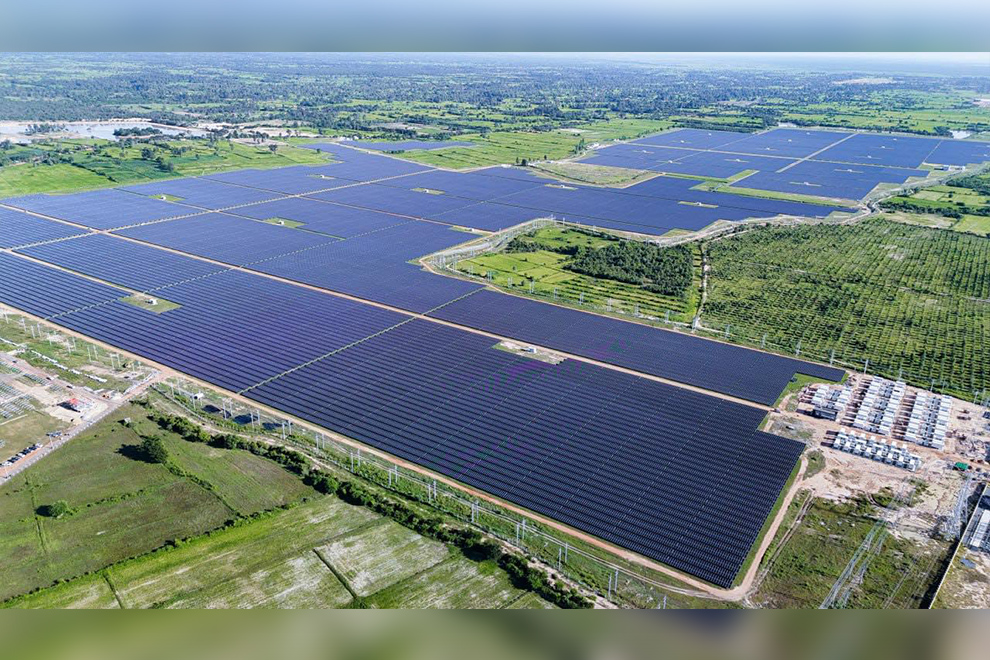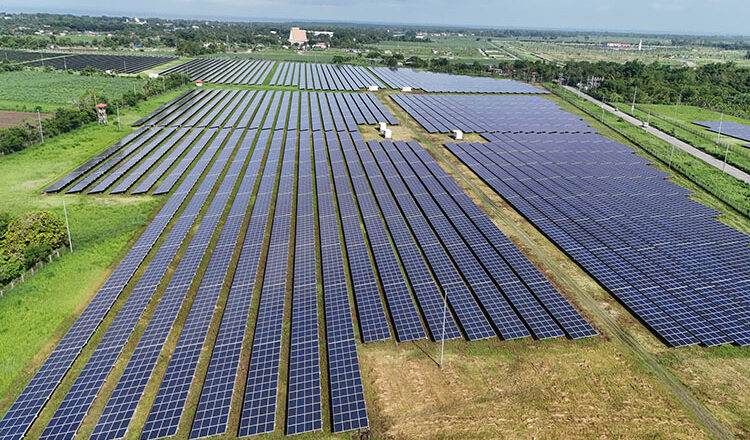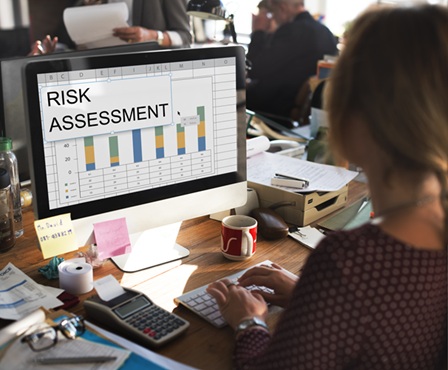A 10-megawatt solar power plant, combined with an energy storage battery system developed by SchneiTec ZEALOUS, has officially begun operations in Pursat province.
The inauguration ceremony took place at the project site in Sna Ansa commune, in Krakor district. The event was attended by Keo Rottanak, Minister of Mines and Energy, Uneno Atsushi, Japanese Ambassador to Cambodia, Khoy Rida, governor of Pursat Province, and many other stakeholders.
In his opening remarks, the Pursat governor drew attention to how political stability and the close attention of the authorities at all levels have made Pursat an attractive location for investment in many sectors. At present, Pursat is a key area for solar and hydroelectric investment.
“Today, Pursat province is seeing remarkable growth, transforming from a transit province into one full of industrial and tourism investment appeal,” he said.
Energy minister Rottanak noted how the seventh-mandate government is working to strengthen economic partnerships with the private sector through the implementation of several new policies aimed at attracting foreign direct investment. He emphasised how the solar project inaugurated today is vital in supporting the province’s economic development.
He added that it will help supply Cambodia’s national grid and promote the development of renewable energy in the country, ensuring a stable energy supply through low-carbon sources, paving the way towards carbon neutrality.
“This project was invested in by Chugoku Electric Power Company, one of Japan’s leading electric power companies, in cooperation with SchneiTec Zealous, which is already established in Cambodia,” he continued.
Japanese Ambassador Ueno Atsushi stated “This solar power and battery storage project will help meet Cambodia’s growing electricity demands and contribute to greenhouse gas reduction efforts,” added Japanese ambassador Ueno.
For full article, please read here
Source: The Phnom Penh Post
Synopsis: The Kingdom’s energy sector has been on an expansion path with many global giants showing active interest in exploring investment opportunities.
Citicore Renewable Energy Corporation (CREC), a major player in the energy scene of the Philippines, is all set to explore market opportunities in the Kingdom.
This was revealed by Oliver Tan, President and CEO of CREC, during an interview with Singapore-based business daily The Business Times.
“Cambodia is really exciting because of its strategic geographical location, especially in terms of the Asean power grid, and its land mass,” Tan said.
He said Cambodia offers many advantages compared to other Asean countries such as Thailand. “Comparatively, property in Thailand is expensive because of how the country markets itself as a tourist destination, and hence, building solar facilities there could be relatively difficult.”
Tan added that energy transition ambition across the Asean region offers great opportunities for the company in the days to come.
The visit by Prime Minister Hun Manet to the Philippines in February provided a perfect platform for many leading companies there to explore investment opportunities in the Kingdom.
CREC is a leading pure renewable energy developer and operator of solar, run-of-river hydro, and offshore wind energy platforms in the Philippines and is now focusing on a major expansion plan across Southeast Asia and beyond.
Indonesian energy giant PT Pertamina last year acquired a 20 percent stake in the Philippine company, with its public float accounting for another 20 per cent and the remainder owned by parent company Citicore Power.
The Kingdom’s energy sector has been on an expansion path with many global giants showing active interest in exploring investment opportunities.
French behemoth TotalEnergies said last month that the company is seriously exploring investment opportunities in the Kingdom.
Mehmet Celepoglu, TotalEnergies Deputy Director for Oceania and Southeast Asia region, also held a meeting with Keo Rottanak, Minister of Mines and Energy, at the ministry headquarters in Phnom Penh, and discussed investment opportunities.
Many Chinese and Korean companies have also expressed interest in the Kingdom’s energy sector.
For more detail, please click here
Source: Khmer Times


















